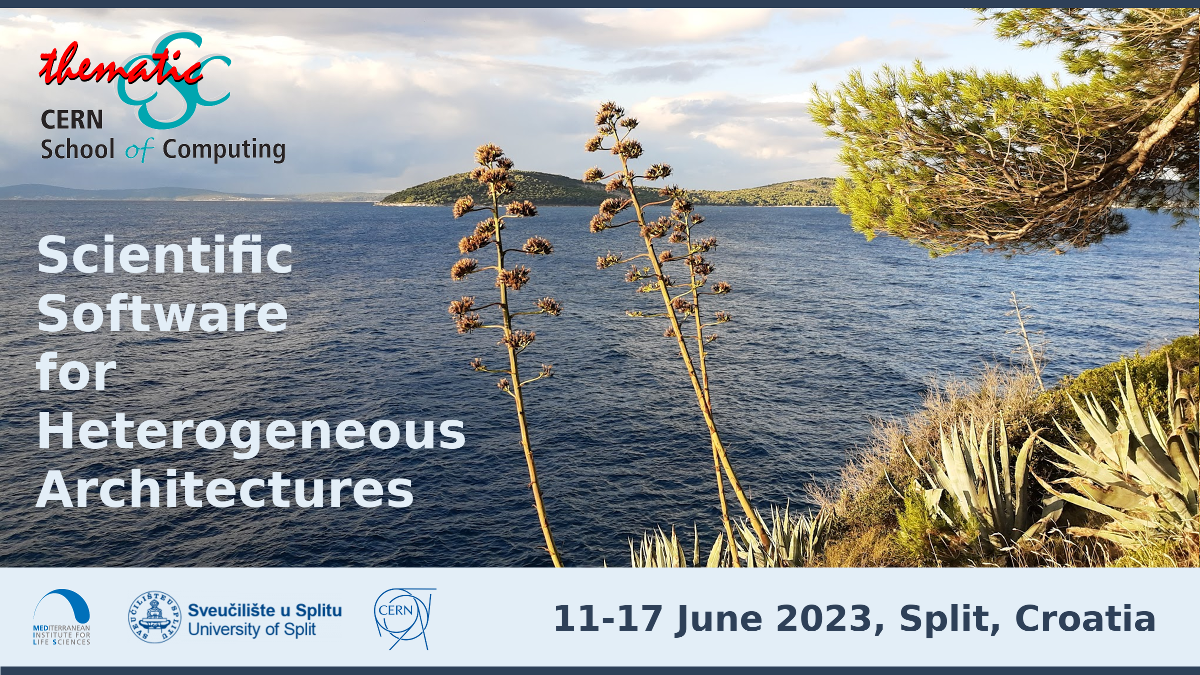Thematic CERN School of Computing 2023
MedILS, Split, Croatia
The 12th Thematic CERN School of Computing (tCSC 2023) will take place on June 11-17, 2023.The theme of the school is "Scientific Software for Heterogeneous Architectures" - see the academic programme for more details.
This school is organized by CERN in collaboration with the University of Split. The school will take place in Split, Croatia, and be hosted at the Mediterranean Institute For Life Sciences (MEDILS) Conference Centre. The Centre is a historical renovated building situated in a wooded and landscaped park located on the Adriatic Sea coast, a few kilometers from the centre of Split.
The School is aimed at postgraduate (i.e. minimum of Bachelor degree or equivalent) students, engineers and scientists with a few years' experience in particle physics, in computing, or in related fields. We welcome applications from all countries and nationalities.
Applications are closed.

Important Dates
- Monday March 13- applications deadline
- Tuesday April 4 - invitations sent to the selected participants
- Tuesday 2 May - registration fee payment deadline
- Sunday June 11 to Saturday June 17 - the school



